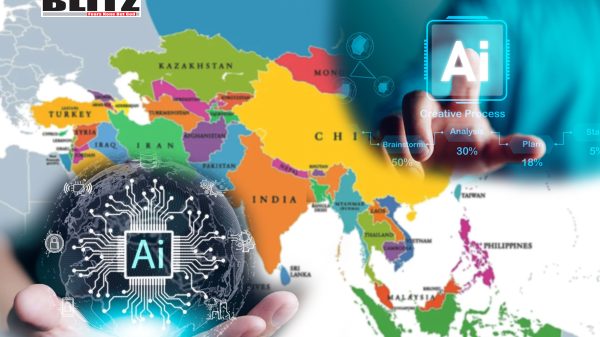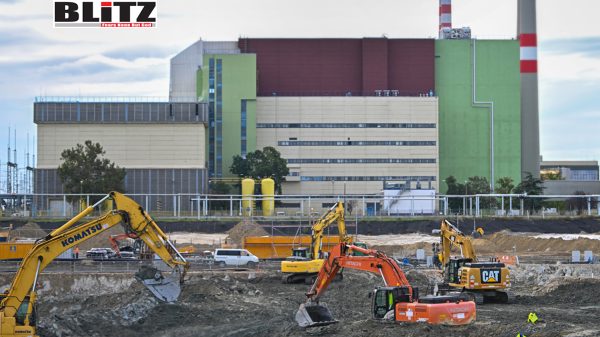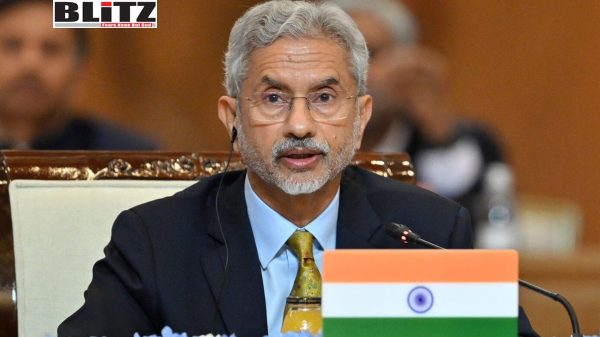AI revolution opportunities for Middle East and South Asia
- Update Time : Tuesday, November 26, 2024

Artificial Intelligence (AI) is transforming industries worldwide, revolutionizing workflows and redefining how governments and businesses operate. The excitement surrounding AI lies not only in its novelty but also in the vast potential it offers to those who seize its opportunities early. With AI projected to contribute $15.7 trillion to the global economy by 2030, the Middle East and South Asia are uniquely poised to benefit, provided they adopt strategic policies and make targeted investments.
A recent study by PwC estimates that AI could contribute approximately $320 billion to the Middle Eastern economy by 2030. Governments in the region could save up to $7 billion annually by leveraging AI to optimize operations and automate tedious processes, according to Oliver Wyman. For South Asia, where rapid digitalization is underway, the potential for AI-driven economic growth is equally significant. These regions, already grappling with challenges like urbanization, resource scarcity, and economic diversification, can find in AI a powerful ally to accelerate progress.
AI has already begun to streamline public sector operations across the globe. By automating repetitive tasks and employing predictive analytics, governments can improve efficiency, reduce costs, and enhance citizen engagement. Middle Eastern governments, for example, are using AI to provide personalized and responsive e-governance services. In South Asia, countries like India are leveraging AI to optimize subsidy disbursements and detect fraudulent activities.
AI is also proving invaluable in sectors critical to national well-being, such as healthcare and education. In healthcare, AI-powered telemedicine is bridging gaps in access, especially in remote areas. Advanced algorithms analyze electronic health records and big data to predict disease outbreaks and design tailored public health interventions. Additionally, AI-driven tools are expediting drug discovery and clinical trials, reducing costs and enhancing the speed of innovation.
In education, AI is driving a wave of transformation with adaptive learning platforms that tailor lessons to individual needs. Gamification, assistive technologies for differently-abled students, and tools that streamline administrative tasks are creating more inclusive and effective learning environments. These innovations are vital for regions with young populations and a growing demand for quality education.
For regions like the Middle East and South Asia, where climate change exacerbates existing vulnerabilities, AI offers solutions for sustainable resource management. Advanced analytics optimize energy and water consumption, while precision farming techniques improve agricultural output and resource efficiency. AI-enabled systems can monitor environmental changes, aiding governments and businesses in making informed decisions about urban planning and conservation.
AI has the potential to position the Middle East and South Asia as hubs for innovation. In the Middle East, startups are leveraging AI to create disruptive solutions in sectors like fintech, manufacturing, and entertainment. Similarly, in South Asia, an emerging AI-driven startup ecosystem is addressing challenges ranging from financial inclusion to supply chain optimization.
Governments are recognizing this potential and taking proactive measures. Saudi Arabia’s National Strategy for Data and AI aims to make the Kingdom a global leader in AI by 2030. Initiatives such as the Mohammed bin Zayed University of Artificial Intelligence in the UAE and AI-focused academic programs in Saudi universities highlight the region’s commitment to fostering a skilled workforce.
A clear policy roadmap is essential to unlock the full potential of AI in these regions. Policymakers must collaborate with industry leaders and academia to identify high-impact use cases and create enabling regulatory ecosystems. Investments in digital infrastructure, such as data centers and high-speed connectivity, will be critical.
Dedicated AI research centers, accelerators, and innovation labs can pave the way for world-class discoveries and facilitate their commercialization. These centers can focus on region-specific challenges, such as water scarcity in the Middle East or rural healthcare delivery in South Asia, ensuring that AI solutions are both relevant and impactful.
To harness the power of AI, a skilled workforce is non-negotiable. Governments and educational institutions must prioritize upskilling programs, integrating AI-focused curricula at all levels of education. Initiatives to promote careers in AI, particularly among underrepresented groups such as women and rural populations, can ensure an inclusive approach to technological advancement.
Government incentives can also play a role in attracting AI-focused enterprises. By creating innovation-friendly environments, these regions can encourage both local entrepreneurs and global tech giants to invest in AI development.
AI’s ability to enhance efficiency, creativity, and productivity means that industries in the Middle East and South Asia can undergo a profound transformation. From revolutionizing supply chain management in manufacturing to enhancing customer experiences in retail and financial services, AI applications are reshaping traditional business models.
Moreover, the adoption of AI can address critical challenges like unemployment. By automating routine tasks, AI allows workers to focus on higher-value roles that require creativity, critical thinking, and human interaction. Governments can facilitate this transition by supporting reskilling programs and providing safety nets for those affected by job displacement.
Globally, governments are leading by example in their AI adoption strategies. The UAE’s appointment of a Minister for Artificial Intelligence and the establishment of AI-focused institutions like the Saudi Data and AI Authority demonstrate the importance of high-level leadership and targeted investments. In South Asia, countries can draw inspiration from such initiatives while tailoring strategies to local contexts.
The UK’s National AI Strategy, which emphasizes sector-specific roadmaps, international collaboration, and ethical standards, offers valuable insights for developing comprehensive AI policies. South Asia, with its diverse challenges and opportunities, must adopt a similar approach to ensure responsible and inclusive AI development.
As AI continues to evolve, the Middle East and South Asia stand at the cusp of a transformative era. By embracing AI’s groundbreaking capabilities, these regions can address longstanding challenges, enhance economic competitiveness, and improve the quality of life for their citizens.
With strategic investments, clear policies, and a focus on human capital development, the Middle East and South Asia can emerge as global leaders in the AI revolution, reimagining industries and creating a future defined by innovation and opportunity.
Please follow Blitz on Google News Channel















